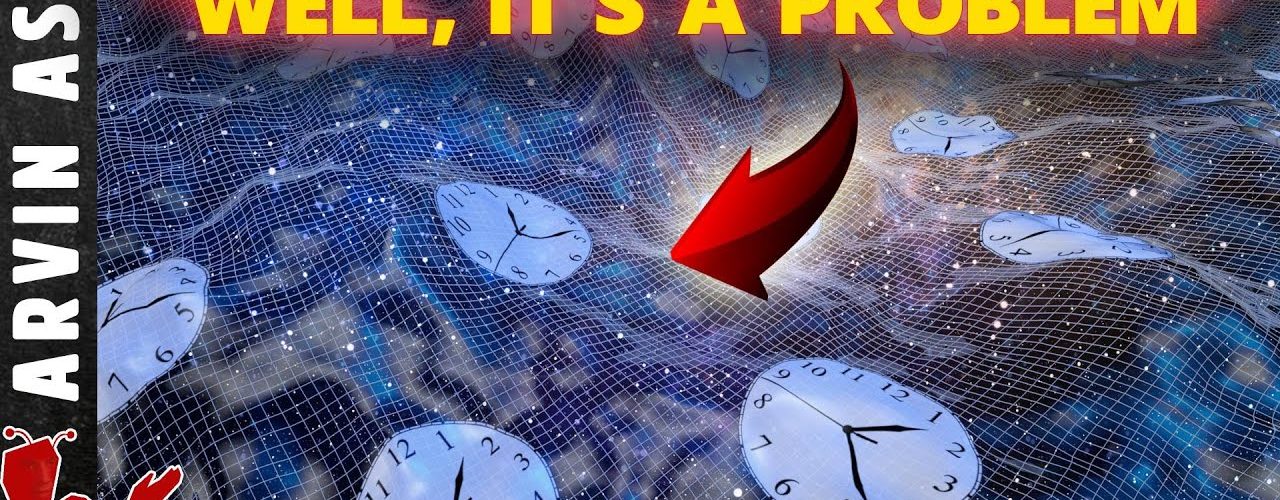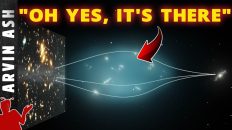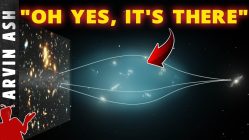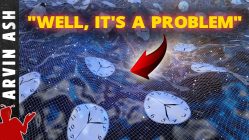What if time is not real, but an illusion? Isaac Newton believed time was absolute and ticked at the same rate for everyone, everywhere. But Albert Einstein shattered that view with the theory of relativity. He showed that time is intertwined with space to form what we now call “space-time.” Time can stretch and compress.
But physicist Carlo Rovelli proposes an even more radical idea. Rovelli argues that time might not exist at all. He suggests that time is not a fundamental feature of reality but an in invention of our brains in order to make sense of the world, to impose a cause and effect to events so they are not nonchaotic.
Craig Callender, a professor of philosophy, also supports this idea. The idea of time as an illusion comes from quantum mechanics. Einstein’s theory of general relativity treats time as an intrinsic part of reality. But in Quantum mechanics, time isn’t malleable, and doesn’t change like other properties of a quantum system. Recording the passage of time requires an observer to consult a clock external to the quantum system.
There’s is no arrow of time in quantum mechanics. Quantum theories can be formulated in a way that doesn’t even include time. Time in quantum mechanics is not built into the formulation. Some quantum mechanics equations like the Wheeler-DeWitt equation which is a quantum description of gravity, don’t include time. According to it, the universe can be described purely in terms of events and relationships, and do not require time.
How can events occur without time passing? One way to think of it, at least in the standard Copenhagen interpretation of quantum mechanics, is a series interactions happening in the form of quantum wave collapse. The wave function for a particle collapses every time it interacts with its surroundings. And a series of wave collapses, one after another, feels like the passage of time. The analogy is like a set of dominoes. Each domino falling is a wave function collapse. Put them all together in a series and it looks like time passing forwards.
Rovelli says that “Events” — not things — are the basic building blocks of reality. Metaphorically, it’s like watching a movie. What you’re really seeing is a series of still pictures or frames.
A new research paper seems to support this idea. The authors say that key to this is quantum entanglement. The authors argue that time at a quantum level, is an emergent phenomenon due to entanglement. Their experiments suggest that time emerges for one object through its quantum entanglement with another quantum object acting as a clock. But for an unentangled system, time does not exist.
But if time isn’t fundamental, why does it FEEL so real to us? The answer, Rovelli says, lies in our ignorance. The flow of time, the forward march from past to future, is a result of our inability to see the world in all its microscopic detail. Our limited knowledge forces us to experience the world in a simplified way, where time appears to flow in one direction. He says thermodynamics forces this perception of time ticking in only one direction, that is entropy. Rovelli suggests that the “arrow of time” is directly tied to this increase in entropy. There is no other way that our brains can interpret this steady march towards more and more disorder than the ticking of a clock in the forward direction.
So, Is time an illusion, a construct of our limited brains? Or is it an intrinsic part of the universe? Most physicists stand by time and will say that time does exist. But the answer is not knowable with what we know today because we cannot test whether time is not real.
#time
#quantummechanics
General relativity makes the concept of time a fundamental part of reality. But this theory also formally killed the concept of gravity. It showed that gravity is an emergent feature from spacetime curvature, not a fundamental property of matter or of the universe, as Newton had defined it. So time could also be similarly shown to not be a fundamental property of the universe but emergent.







